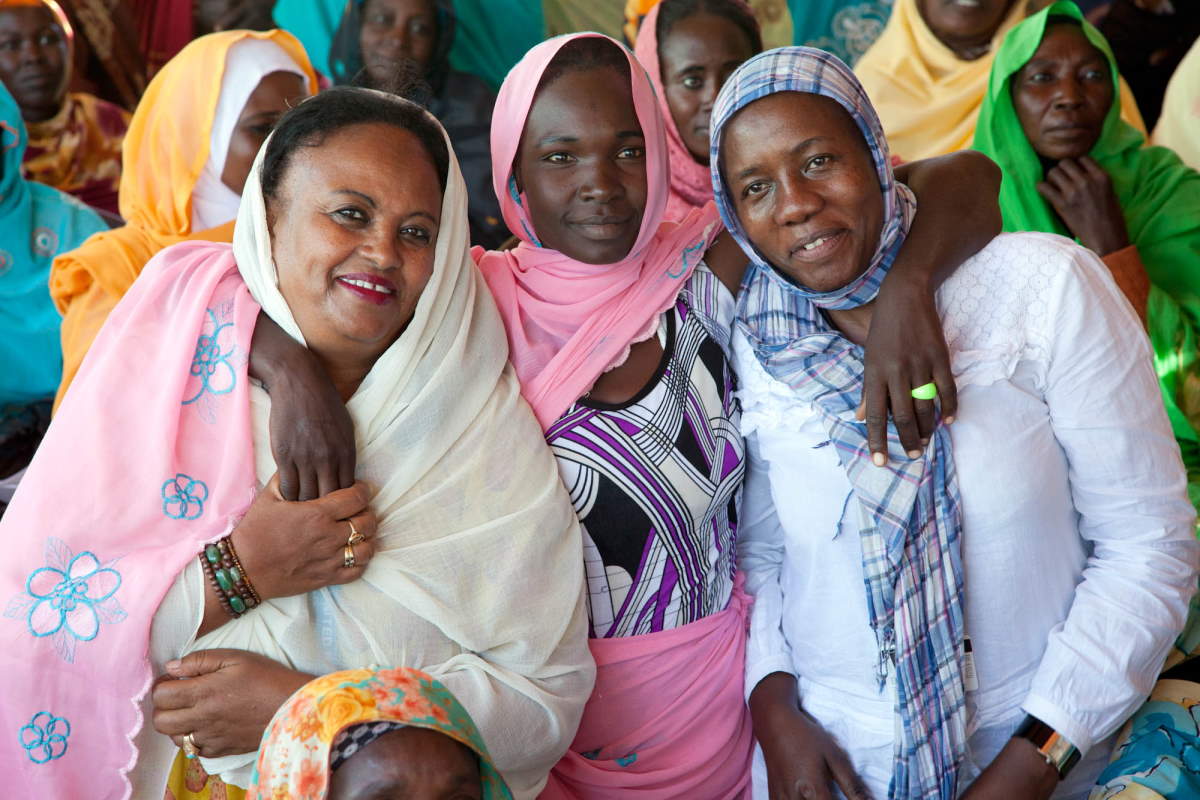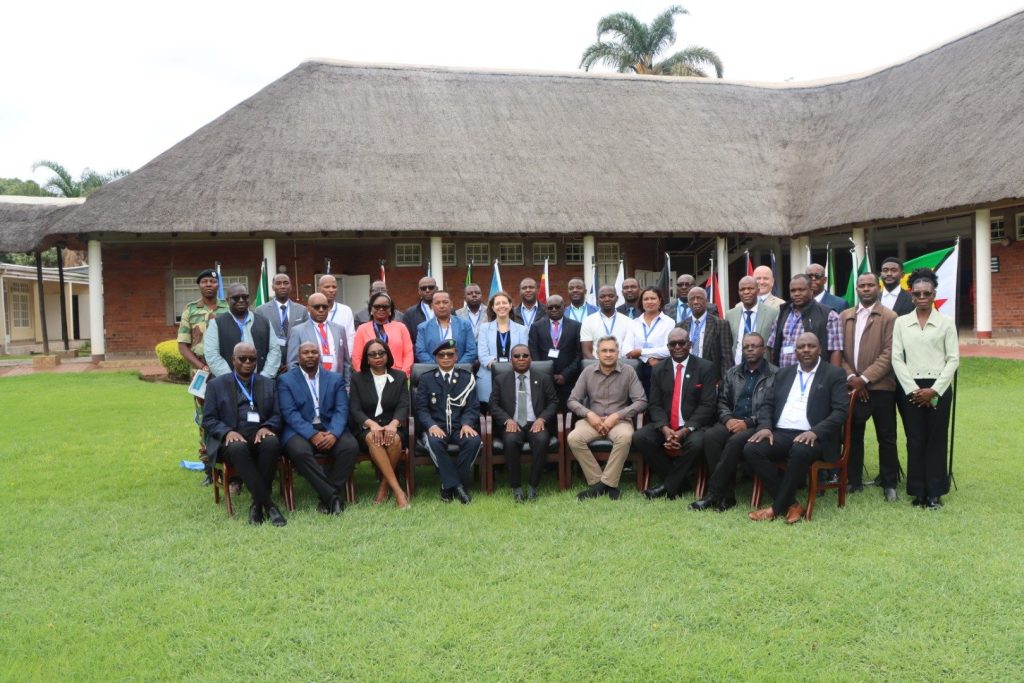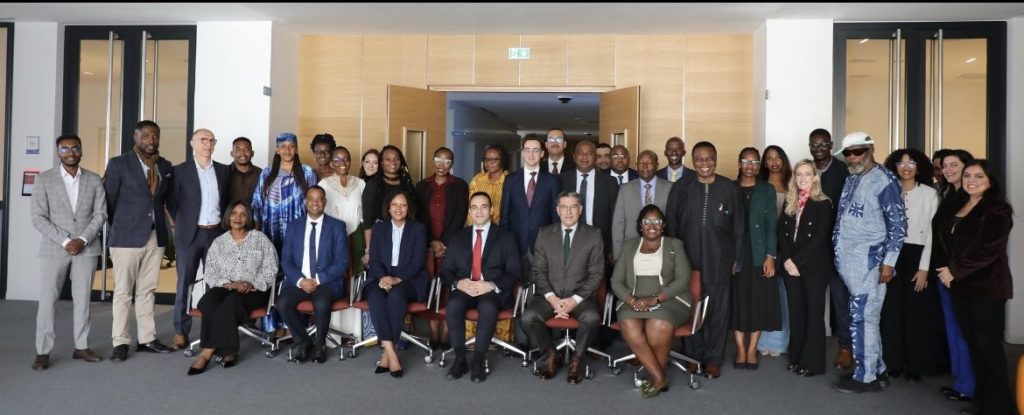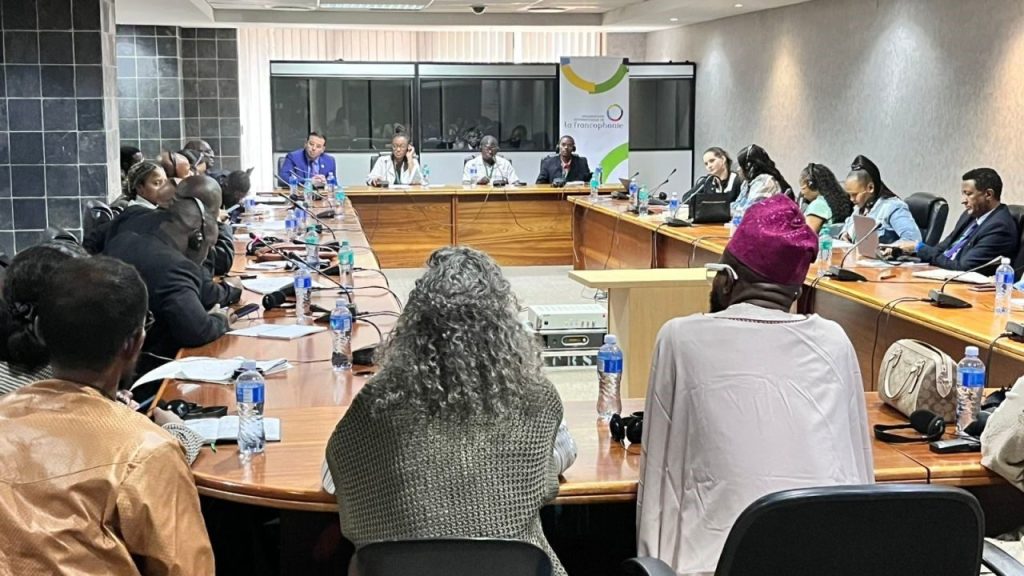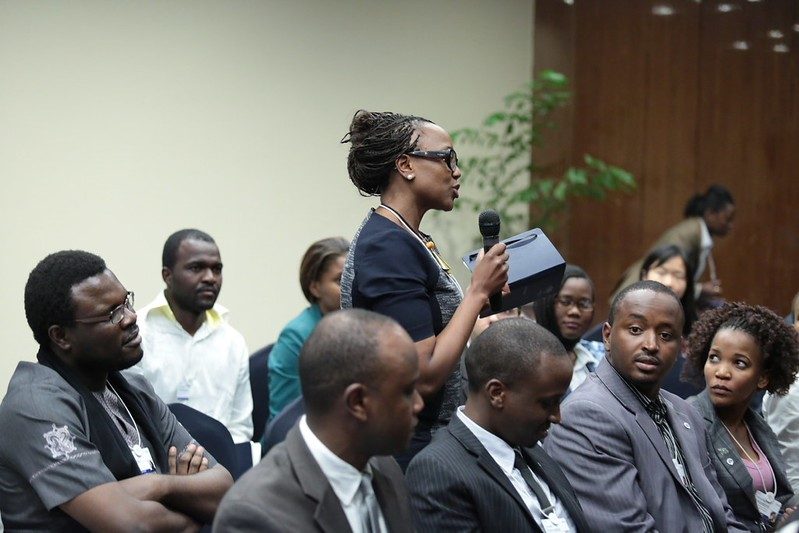On the eve of the 20th anniversary of the United Nations Security Council Resolution 1325 (2000) on women, peace and security (UNSCR 1325), Ms. Pravina Makan-Lakha, General Manager and Advisor on Women, Peace and Security (WPS) participated in the online virtual dialogue titled, “20 years of African Women’s Participation in Women, Peace and Security: Civil Society Perspectives.” The online meeting which took place on 23 October 2020, comes at a crucial moment in the WPS field, as partners around the world are taking the opportunity to take stock of the progress and address the gaps of the WPS agenda over the last 20 years.
The 3-hour event was jointly hosted by 11 civil society organisations across Africa, including: Human Sciences Research Council; Africa Institute of South Africa; Women’s International Peace Centre; Femmes Africa Solidarité (FAS); South African Women in Dialogue (SAWID); West Africa Network for Peacebuilding (WANEP); African Women in Dialogue (AfWID); African Leadership Centre; Institute for Security Studies (ISS); Training for Peace (TfP); ACCORD; as well as the South Africa Department of Science and Innovation.
The objectives of the virtual meeting were to hear women’s voices and perspectives on progress and challenges since the adoption of UNSCR 1325 20 years ago and to chart new paths for women in Africa in the peace and security arena. The meeting focused on four themes: prevention and protection, mediation, peacekeeping and post-conflict reconstruction and peacebuilding.
During the plenary discussion, Ms. Pravina Makan-Lakha spoke to the mixed bag of results emerging. For example, in Southern Africa, although there is a growing number of female representation in parliaments, this progress is not being translated into realties in the community as the countries continue to receive poor rankings in terms of the Gender Inequality Index. To illustrate, in January 2019, 46.8% of South Africa’s parliament were women, yet, the country ranked 97th on the Gender Inequality Index. Moreover, when it comes to mediation in Africa, out of the 16 peace agreements signed between 1992 to 2011, only two included women as signatories and only three included women as lead mediators. Ms. Pravina Makan-Lakha added that, more recently, women from Libya, Central African Republic, Sudan and South Sudan have faced numerous obstacles, as well as outright resistance, to demands for their participation in peace processes. She concluded by saying although the numbers are not a cause for celebration, as the field commemorates UNSCR 1325, we must recognise our success in establishing, promoting, and strengthening women conflict prevention and mediation networks.
Ms. Pravina Makan-Lakha was joined by fellow speakers Ms. Shuvai Nyoni, African Leadership Centre; Dr Awino Oketch, University of London School of Oriental and African Studies; and Ms. Caryn Dasah, a Youth Leader in Cameroon. Ms. Shuvai Nyoni spoke to women and leadership in peace and security while Dr Awino Oketch spoke about rethinking the WPS agenda, its conceptual and implementation challenges and where to from here. Ms. Caryn Dasah shared her perspectives on women’s participation, especially that of the youth, in peace processes in Cameroon and how things can be done differently.
Following the plenary discussion, participants had the opportunity to engage in breakout rooms on the following topics: Prevention and Protection; mediation; peacekeeping; and post-conflict reconstruction and peacebuilding. The outcomes and recommendations from the discussions were shared afterwards in plenary. Some recommendations from the discussions included:
- Document and profile the role of women and youth as well as their successes in peace and security activities;
- Encourage collaborative exchanges;
- Engage youth and their technological knowledge;
- Encourage a positive peace agenda which places women at the center; and
- Ensure adequate funding is available for civil society organisations.
The past 20 years and more have been busy with concerted efforts from civil society to popularise UNSCR 1325, the WPS agenda and ensuring that women are not left behind in peace processes. However, as the numbers show, there is still ways to go before we can confidently state we have achieved our goals. ACCORD remains committed to ensuring the success of the WPS agenda by conducting research, documenting the experiences of women peacebuilders, and providing capacity building and networking opportunities.

